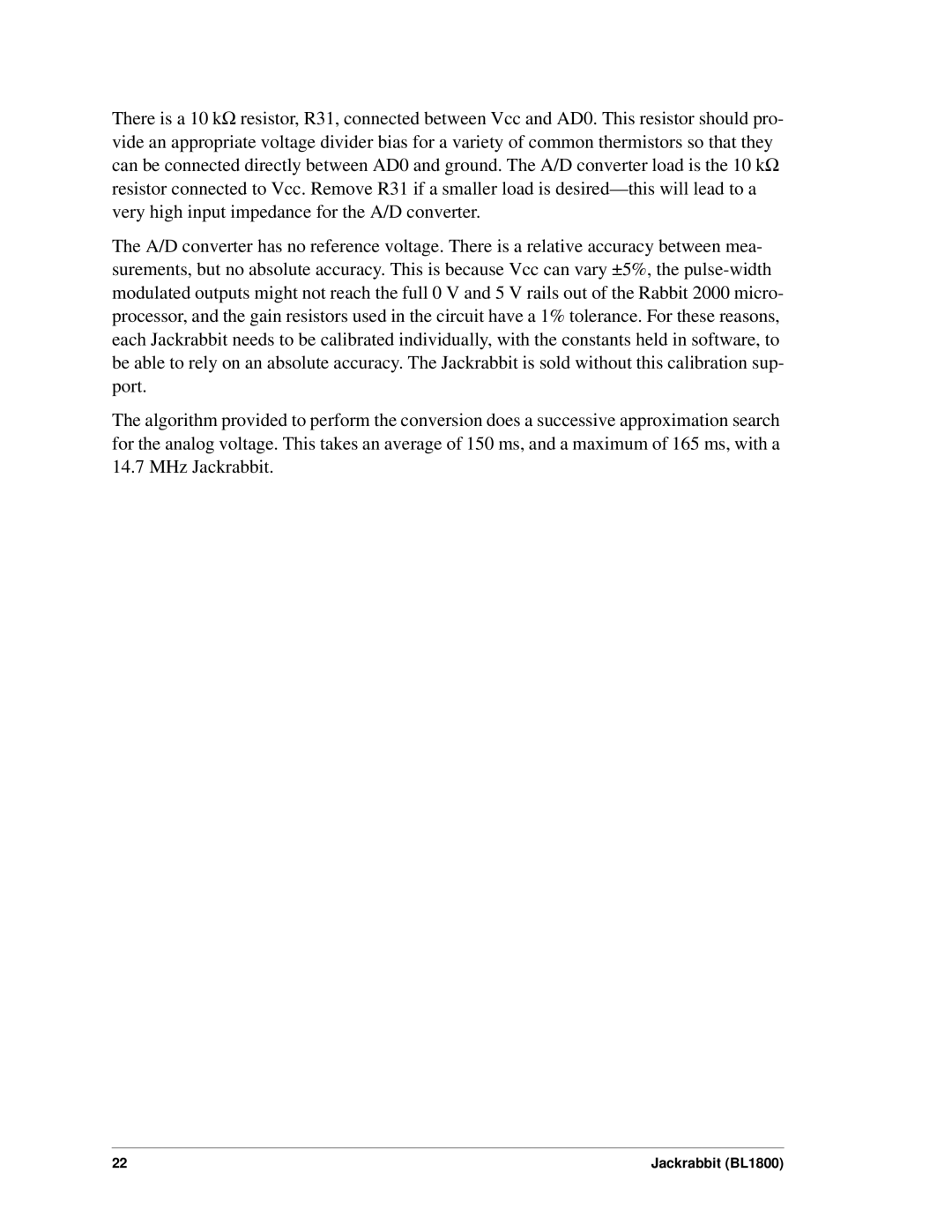There is a 10 kΩ resistor, R31, connected between Vcc and AD0. This resistor should pro- vide an appropriate voltage divider bias for a variety of common thermistors so that they can be connected directly between AD0 and ground. The A/D converter load is the 10 kΩ resistor connected to Vcc. Remove R31 if a smaller load is
The A/D converter has no reference voltage. There is a relative accuracy between mea- surements, but no absolute accuracy. This is because Vcc can vary ±5%, the
The algorithm provided to perform the conversion does a successive approximation search for the analog voltage. This takes an average of 150 ms, and a maximum of 165 ms, with a 14.7 MHz Jackrabbit.
22 | Jackrabbit (BL1800) |
